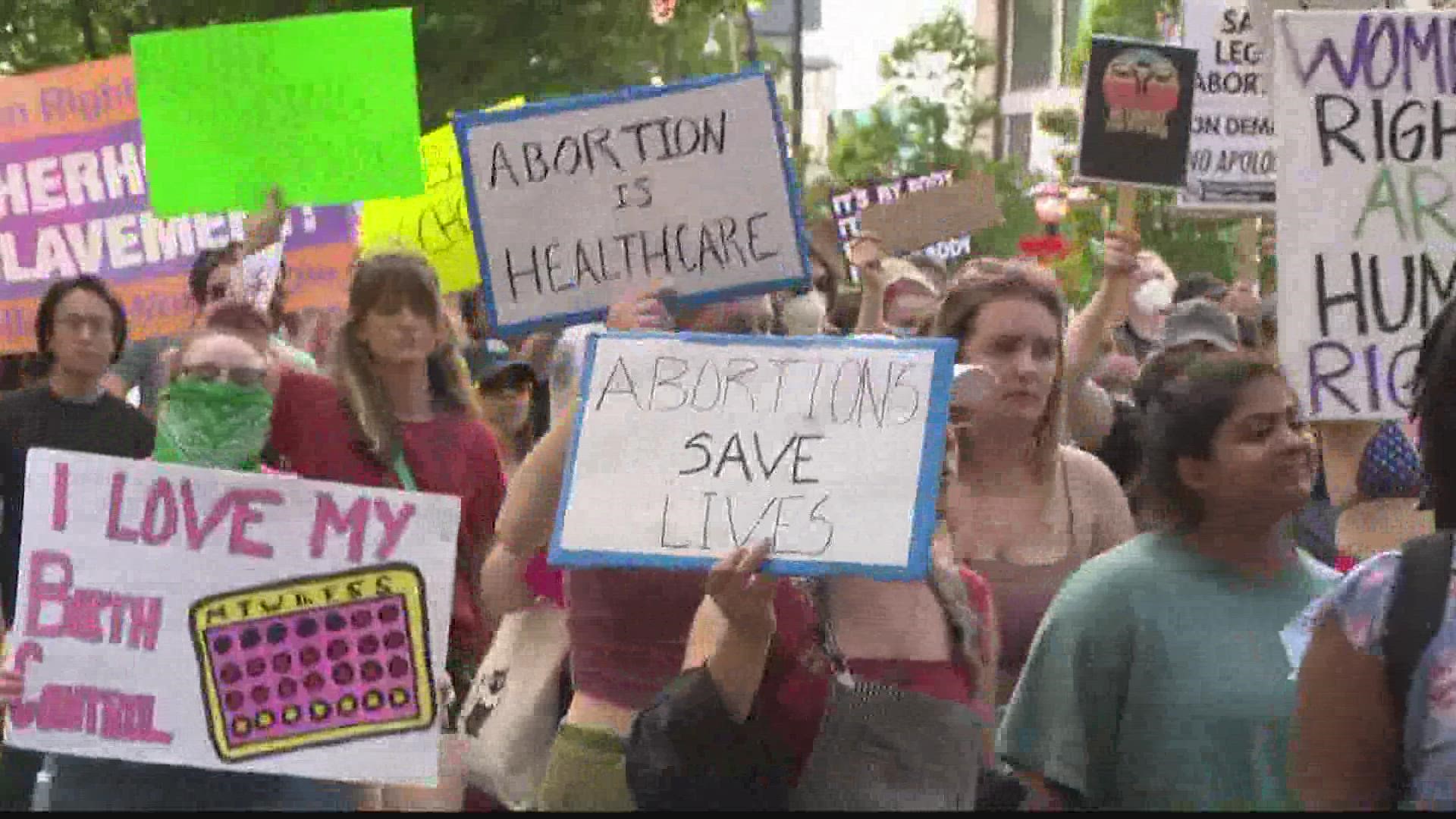ATLANTA — Voters will have a list of issues to consider in Georgia's election for governor about 19 weeks from now – and the two parties aren’t really talking about the same ones.
Gov. Brian Kemp championed a restrictive abortion law in Georgia three years ago and got a green light from the Supreme Court last week to likely get it enacted this summer.
But when 11Alive's Doug Richards tried to talk with Kemp about Georgia's heartbeat law this week the governor stepped into a state car and stayed mum.
Republicans have seen polling that shows Georgians overall are still mostly pro-choice after Roe v. Wade was reversed -- a statistic they are considering as the general election looms in November.
"If you try to use the same talking points you used in the primary, you could alienate the persuadable voters," said former Democratic state Rep. Doug Teper, a Georgia State University political science instructor.
Democrats – including Stacey Abrams -- have talked at great length about abortion since the decision overturning Roe v. Wade, with an eye on gaining votes in November.
"In order to stop the foolishness the Republicans are doing, you have to do one thing and one thing only – vote," said state Rep. James Beverly (D-Macon), the House minority leader, during a pro-choice event Tuesday.
But Republicans see protests against the abortion ruling, and they hope it reminds voters of the protests of 2020, which often enough included a message that called to "defund the police."
As crime rates started to spike two years ago, Republicans backed police – and still want to tie Democrats to a movement that Republicans say would abet criminals.
"The 'defund the police' movement in this country has done enormous harm and made our communities less safe," said Republican attorney general Chris Carr, during an event Wednesday supporting Kemp.
Republicans also want to talk about jobs, inflation and gasoline prices – while Democrats emphasize issues like health care and gun control.
Voters will have their hands full this fall deciding which issue is most important to them and who they think can help bring solutions. And every vote will help define Georgia, which was once a reliably red state.
"We think it’s a good time to define who we are in the state of Georgia moving forward," Beverly said. "And more people are going to be willing to vote than in times past."

